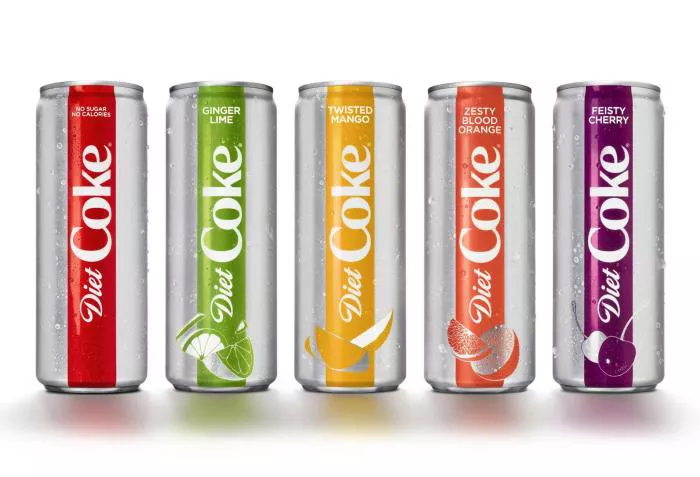Breastfeeding is a vital time for both mothers and babies. What a mother eats and drinks can affect her breast milk and, in turn, her baby’s health. One common question is whether Diet Coke is safe for breastfeeding mothers. This article will explore the potential effects of Diet Coke on breastfeeding and offer guidance for nursing mothers.
Understanding Diet Coke
Diet Coke is a popular soft drink. It is a sugar-free version of Coca-Cola. Instead of sugar, it uses artificial sweeteners like aspartame or sucralose. Many people choose Diet Coke to reduce their calorie intake or avoid sugar. However, the safety of these sweeteners is often debated.
Ingredients and Their Effects
The main ingredient in Diet Coke is carbonated water. This is safe for breastfeeding. The next key ingredient is artificial sweeteners. Aspartame is one of the most common. According to the U.S. Food and Drug Administration (FDA), aspartame is safe to consume. However, some studies suggest it might have side effects in certain individuals.
Sucralose, another common sweetener in Diet Coke, is also deemed safe by health authorities. Yet, some people may have sensitivities to artificial sweeteners. If a mother consumes large amounts, it could potentially lead to discomfort or other issues.
Caffeine Content
Diet Coke contains caffeine, a stimulant. A typical 12-ounce can has about 46 milligrams of caffeine. While moderate caffeine intake is generally considered safe during breastfeeding, excessive caffeine can affect the baby.
Caffeine can pass into breast milk, but usually in smaller amounts. The American Academy of Pediatrics suggests that breastfeeding mothers limit their caffeine intake to about 300 milligrams per day. This means consuming Diet Coke in moderation is likely acceptable for most breastfeeding mothers.
Potential Effects on the Baby
When a mother consumes Diet Coke, the main concern is its ingredients. While the FDA classifies aspartame and sucralose as safe, research on their long-term effects, especially in infants, is limited.
Some parents worry that artificial sweeteners might impact a baby’s development or behavior. However, research has not conclusively shown that these sweeteners harm breastfeeding infants. Most studies suggest that moderate consumption does not lead to any adverse effects.
Nevertheless, every baby is different. Some babies may react differently to their mother’s diet. If a mother notices unusual behavior or digestive issues in her baby after consuming Diet Coke, she should consider reducing her intake or eliminating it from her diet.
Hydration and Nutritional Needs
Breastfeeding mothers need to stay hydrated. While Diet Coke can contribute to fluid intake, it is not a substitute for water. Relying too heavily on soft drinks might lead to inadequate hydration.
Moreover, Diet Coke does not provide essential nutrients. Breastfeeding mothers should prioritize a balanced diet rich in fruits, vegetables, whole grains, and protein. This will support both their health and the quality of their breast milk.
Alternatives to Diet Coke
If a breastfeeding mother enjoys the fizzy taste of Diet Coke, there are healthier alternatives. Consider flavored sparkling water or herbal teas. These options can provide hydration without the added sweeteners and caffeine.
If a mother craves the flavor of cola, she might try making her own version using carbonated water and a splash of juice. This way, she controls the ingredients and can reduce sugar and artificial sweetener intake.
Moderation is Key
The main takeaway for breastfeeding mothers is moderation. Diet Coke is not inherently bad for breastfeeding. However, like any processed drink, it should be consumed in limited quantities.
Mothers should pay attention to their bodies and their babies. If a mother enjoys Diet Coke and does not notice any negative effects on her baby, occasional consumption is likely fine. Keeping track of the amount consumed and how it affects both mother and baby is essential.
Listening to Your Body
Every mother’s experience with breastfeeding is unique. Some mothers may feel fine after consuming Diet Coke, while others might experience discomfort. It’s crucial to listen to one’s body and make adjustments as needed.
If a mother feels jittery or anxious after consuming caffeine, it might be wise to cut back. Similarly, if a baby appears fussy or has digestive issues, it may be time to reevaluate dietary choices.
Conclusion
In summary, Diet Coke can be part of a breastfeeding mother’s diet if consumed in moderation. The ingredients, including artificial sweeteners and caffeine, are generally considered safe. However, individual reactions may vary, so monitoring both personal health and the baby’s response is essential.
Breastfeeding mothers should prioritize a balanced diet rich in nutrients. Staying hydrated and choosing healthier drink options can benefit both mother and baby. Ultimately, the decision to consume Diet Coke should be based on personal comfort and health considerations. If in doubt, consulting a healthcare professional can provide personalized guidance.
By focusing on a balanced diet and listening to their bodies, breastfeeding mothers can enjoy their favorite drinks while ensuring the well-being of their babies.
Related topics:


